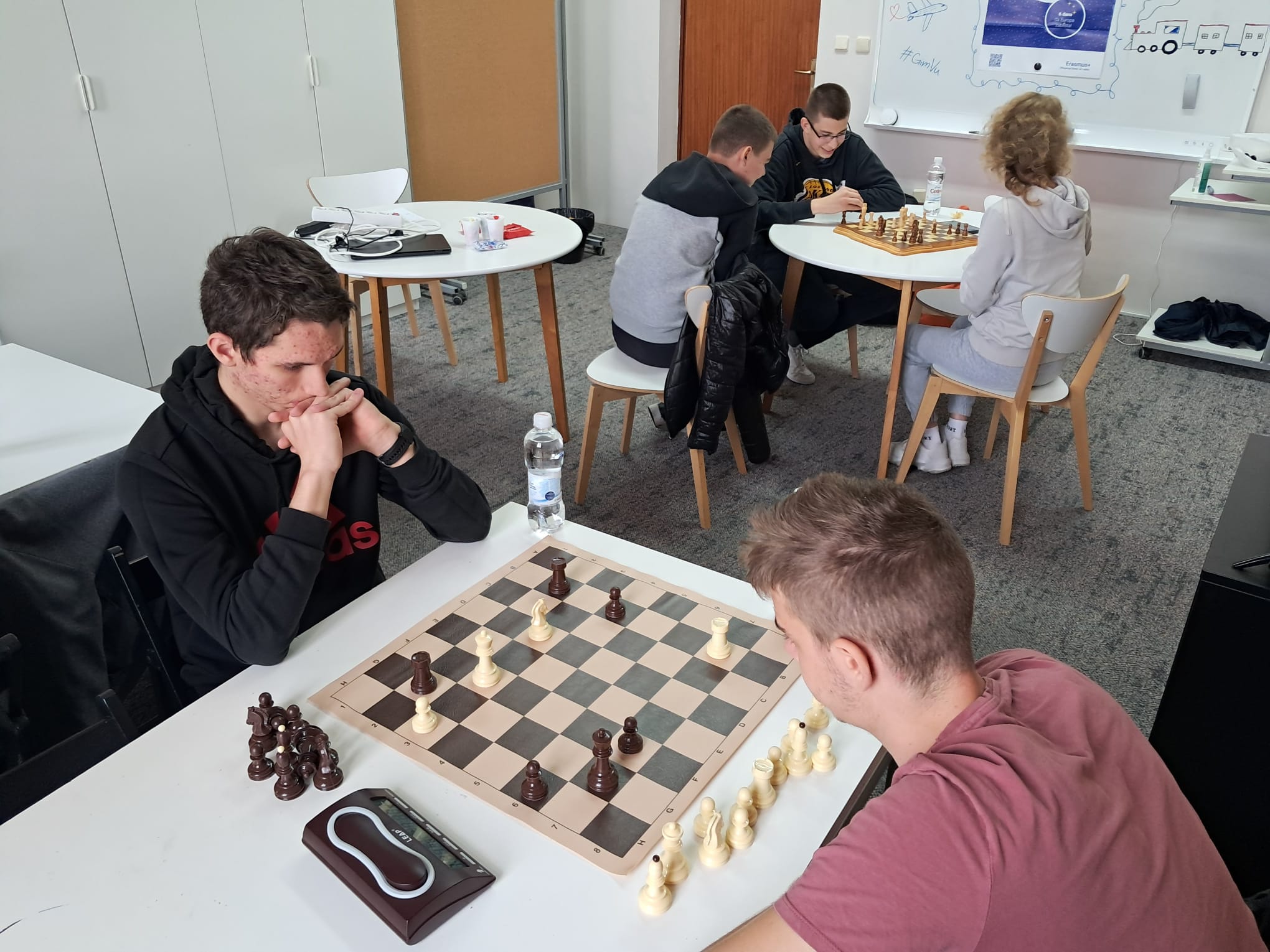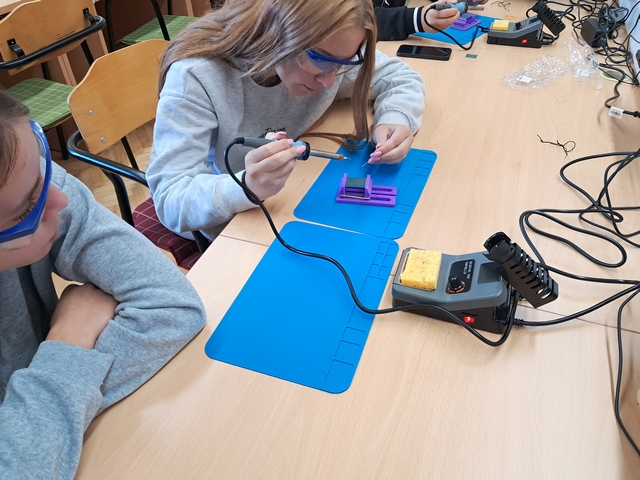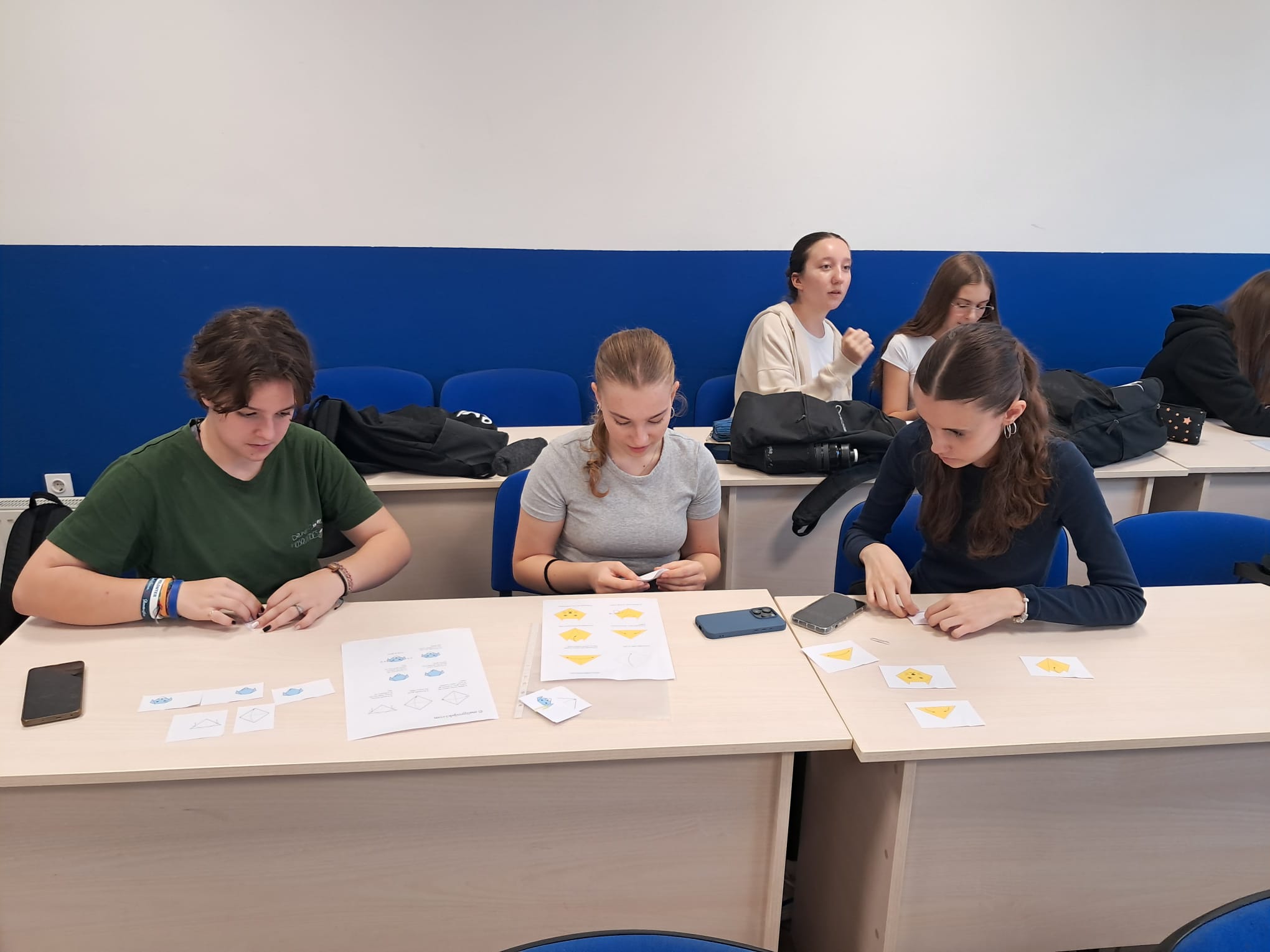Empowering future innovators: EU Code Week sparks creativity and digital skills at Gymnasium Vukovar
23/10/24
In celebration of the EU Code Week, Gymnasium Vukovar organised a series of activities designed to spark student interest in programming, technology, and digital literacy. Workshops, competitions, and project activities were held, allowing students to develop their technical, creative, and analytical skills.
3D Printing Workshop: From Idea to Model
As part of the workshop “From idea to model – Introduction to 3D printing,” a group of students learned the basics of 3D modelling using the Tinkercad tool. Through the steps of designing and creating their first models, they discovered how the manufacturing process begins with a digital model and ends with a physical object produced by a 3D printer. This activity helped students develop spatial reasoning and problem-solving skills while gaining insight into the practical applications of modern technology.
Arduino Traffic Light: Building with Electronics and Code
In the technical workshop “Arduino Traffic Light,” students built a model traffic light using LEDs, resistors, and basic programming code with the help of Arduino. Through this workshop, they learned how to connect electronic components and program the Arduino to simulate the operation of a traffic light. This hands-on activity enabled students to develop foundational knowledge in electronics, programming, and logical reasoning.
Exploring Big Data: Understanding Its Impact and Ethics
One of today’s important topics, “Big Data,” was introduced in a workshop that immersed students in the world of big data. Reflecting on how big data is used in industry, advertising, and artificial intelligence, students touched on ethical issues such as privacy protection and proper data handling. This activity encouraged critical thinking about the role of data in contemporary society, and students explored how big data shapes their daily digital activities and decisions.
Chess Competition: Connecting Strategy and Algorithms
For lovers of logical thinking and strategic games, a school chess competition was organized. In this engaging activity, students successfully linked chess strategy with the concept of algorithms. Chess, as a game that requires predicting moves and precise planning, provides a perfect opportunity to understand algorithmic thinking. Students analysed moves, considered optimal strategies, and compared their reasoning to computer algorithms that solve complex problems. Besides developing their analytical and problem-solving skills, they also enjoyed the challenge of competition.

Soldering Workshop: Hands-On Experience with Electronics
A soldering workshop was also conducted, during which students gained practical knowledge about soldering electronic components. Through this activity, they learned the basics of safely handling tools and materials while developing the skills necessary to create simple electronic circuits.

Smart Sensors and IoT Workshops
In the “Smart Sensors” workshop, students used Arduino and sensors to measure environmental conditions such as temperature, humidity, and CO₂ levels. This workshop encouraged students to think about technology that can aid in monitoring and preserving the environment. They gained foundational knowledge about sensors and their applications while developing technical and analytical skills. Students explored the potential of Internet of Things (IoT) technology through the workshop “Connected World,” where they built and programmed a wirelessly controlled camera using Arduino. Through this activity, they learned how to connect IoT devices and manage them remotely, gaining insight into one of the latest technological fields that connects everyday devices to the internet in a unified ecosystem.
Unplugged Activities: Programming Without Computers
A series of short unplugged activities were also conducted, allowing students to creatively explore programming without using computers. This initiative fostered connections with other schools through the EU Code Week alliance, aimed at promoting new collaborations and joint efforts to enhance digital literacy.

The entire first EU Code Week was filled with enthusiasm and creativity. Students had the opportunity to explore various aspects of programming and technology, acquire valuable knowledge, and improve skills that will be useful in their future. The diverse content and themes allowed each student to participate in activities that matched their interests, making technology and programming accessible to all.
Thanks to Sanja Pavlović Šijanović, Leading Teacher, Gymnasium Vukovar, Croatia, and Davor Šijanović, Gymnasium Vukovar, Croatia for this contribution.


